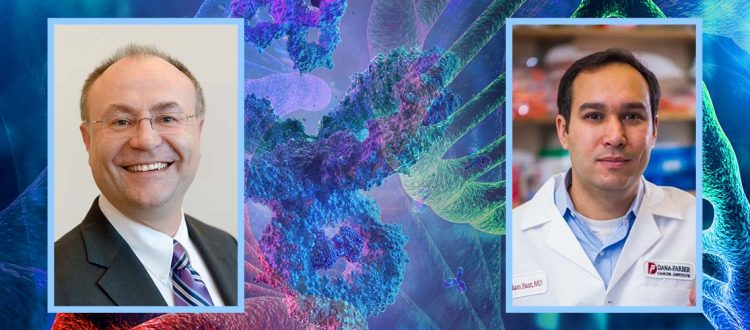Foundation Grant Recipients Report Progress in Studies in Epigenetics and Chromosomal Instability
Last year, the Gastric Cancer Foundation awarded two $75,000 grants to researchers probing new targets for treating gastric cancer. Now both are reporting the progress they’ve made thanks to funding from the foundation.
One grant went to the lab of Heinz-Josef Lenz, professor of medicine, associate director of clinical science and co-director of the University of Southern California Norris Center for Cancer Drug Development. Lenz’s plan was to study epigenetic forces in gastric cancer, specifically mutations in a gene called KMT2 that are associated with advanced gastric cancer and poor survival.
“We were able to show what impact these mutations have on the characteristics of gastric cancer cells, specifically that they’re linked to immune pathways,” Lenz says. A paper describing the findings was published in the journal Oncogene in June.
Using data from public tumor databases, Lenz’s team determined that gastric tumors with KMT2 mutations should be amenable to immunotherapy approaches. So they’re now planning to conduct further experiments to gain more insights into the potential use of immunotherapy. Lenz hopes that with more data, his team will be able to submit a proposal to the National Cancer Institute for a clinical trial of immunotherapy in these patients. They also submitted an abstract for the 2022 conference of the American Association for Cancer Research.
The Foundation grant “was very critical to get the basic research started,” Lenz said. “It gave us insights and the basis to formulate new hypotheses.”
Adam Bass received a Foundation grant to study chromosomal instability in gastric cancer. Bass, who was an associate professor at Harvard Medical School at the time, is now director of the Herbert Irving Comprehensive Cancer Center (HICCC) at Columbia University and NewYork-Presbyterian and director of gastrointestinal oncology.
Chromosomal instability (CIN) is a phenomenon in which structural errors occur when DNA copies itself inside stomach tumors. With the funding from Gastric Cancer Foundation, Bass and his colleagues partnered with the Broad Institute of Harvard and the Massachusetts Institute of Technology to build a computational model of CIN.
“Our team developed a computational way to classify cancers by the type of chromosomal patterns they have and build a statistical model to try to link that to vulnerabilities,” Bass explains. “With that model, we found a host of potential [drug] targets for cancers with broad chromosomal aberrations.”
Bass’ team is working on a paper that will describe the computational model. And the researchers are also planning studies to validate the top targets they uncovered using the new computational model.
The Gastric Cancer Foundation funding “supported the person who was doing the computational work and allowed us to take another member of the lab and shift him over, so he could take the time to develop the systems we need to study chromosomal instability,” Bass says. “Now we’re better poised to tease apart the mechanisms [of CIN] and validate our hypotheses.”

